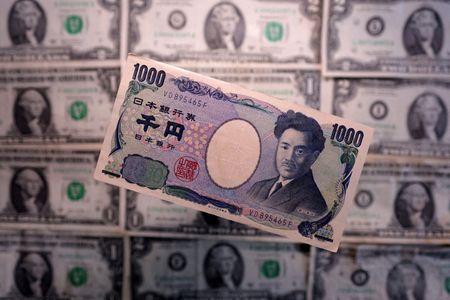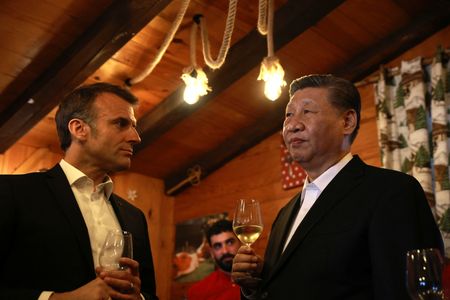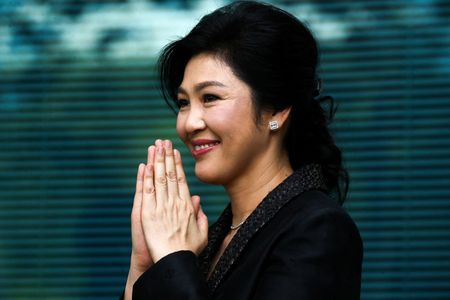By Makiko Yamazaki
BANFF, Alberta (Reuters) – U.S. Treasury Secretary Scott Bessent and Japanese Finance Minister Katsunobu Kato agreed on Wednesday that the dollar-yen exchange rate currently reflects fundamentals, the U.S. Treasury Department said, a rare and explicit statement on the market situation.
President Donald Trump’s focus on addressing the huge U.S. trade deficit and his past remarks accusing Japan of intentionally maintaining a weak yen have led to market expectations that Tokyo will face pressure to strengthen its currency’s value against the dollar to give U.S. manufacturers a competitive advantage.
Bessent and Kato “reaffirmed their shared belief that exchange rates should be market determined and that, at present, the dollar-yen exchange rate reflects fundamentals,” the Treasury Department said in a statement.
They met on the sidelines of the Group of Seven finance ministers gathering in Banff, Canada.
In a rather contradictory statement, however, the department also said that, as in their previous meeting in April, they did not discuss foreign exchange levels.
Asked about the Treasury’s claim that the two agreed exchange rates reflect fundamentals at a subsequent news conference, Kato said that he was not in a position to comment but added that he did not discuss ‘exchange-rate levels’.
“We agreed that currency rates should be set by markets,” he said.
The dollar briefly jumped to 144.40 yen after the U.S. statement, but the lack of confirmation from the Japanese side pushed back the greenback below 143.50 yen.
Later on Wednesday, Japan’s top currency diplomat, Atsushi Mimura, who also attended the bilateral meeting, clarified that Kato and Bessent neither discussed currency targets nor current rates.
“Our understanding is that the U.S. side probably meant the agreed basic principles that currency rates should be set by markets and excessive volatility and disorderly movements are not desirable,” Mimura told reporters.
SQUASHING SPECULATION
Katsutoshi Inadome, senior strategist at Sumitomo Mitsui Trust Asset Management, said the U.S. statement may reflect its wish to avoid a further depreciation of the dollar.
“Without the statement, the market would have speculated that the U.S. might have pushed Japan for a stronger yen. I personally believe that Bessent, with his sense as a market player, wanted to squash such expectations,” Inadome said.
Some Asian currencies including South Korea’s and the Taiwan dollar this month saw sharp swings on market speculation about possible U.S. pressure to prop up their currencies in their tariff talks.
Japan and the United States have agreed to keep the thorny issue of currency rates separate from direct trade negotiations, setting it aside for talks between their finance ministers.
A weak yen has also been a headache for Japanese policymakers because it accelerates inflation by pushing up import costs and weighs on consumption.
But the yen has already strengthened about 9% this year, as strong uncertainties stemming from sweeping U.S. tariffs have led investors to buy safe-haven currencies such as the yen.
In the news conference, Kato said he did not directly discuss Japan’s massive holdings of U.S. Treasuries with Bessent.
Earlier in May, Kato surprised markets by saying that Japan could use its $1 trillion-plus Treasuries holdings as a card in trade talks with Washington, but later clarified that his comments did not mean to suggest potential sale.
(Reporting by Makiko Yamazaki; Additional reporting by Kentaro Sugiyama and Ryan Patrick Jones; Editing by Chris Reese, Jamie Freed and Saad Sayeed)







